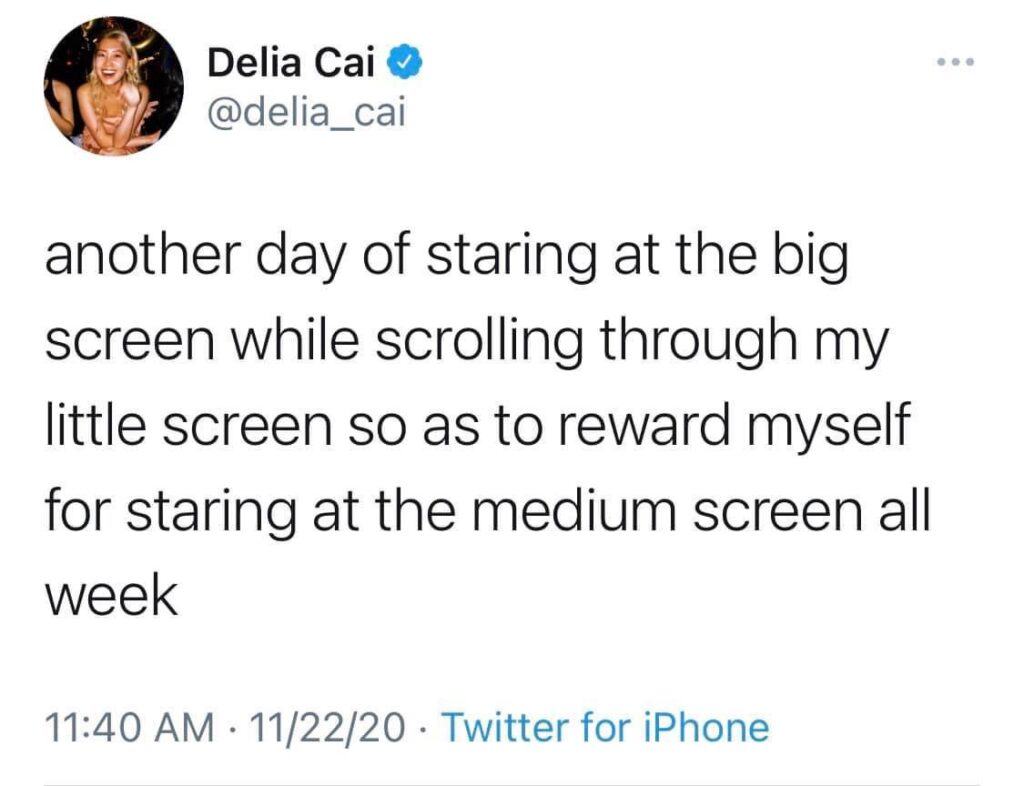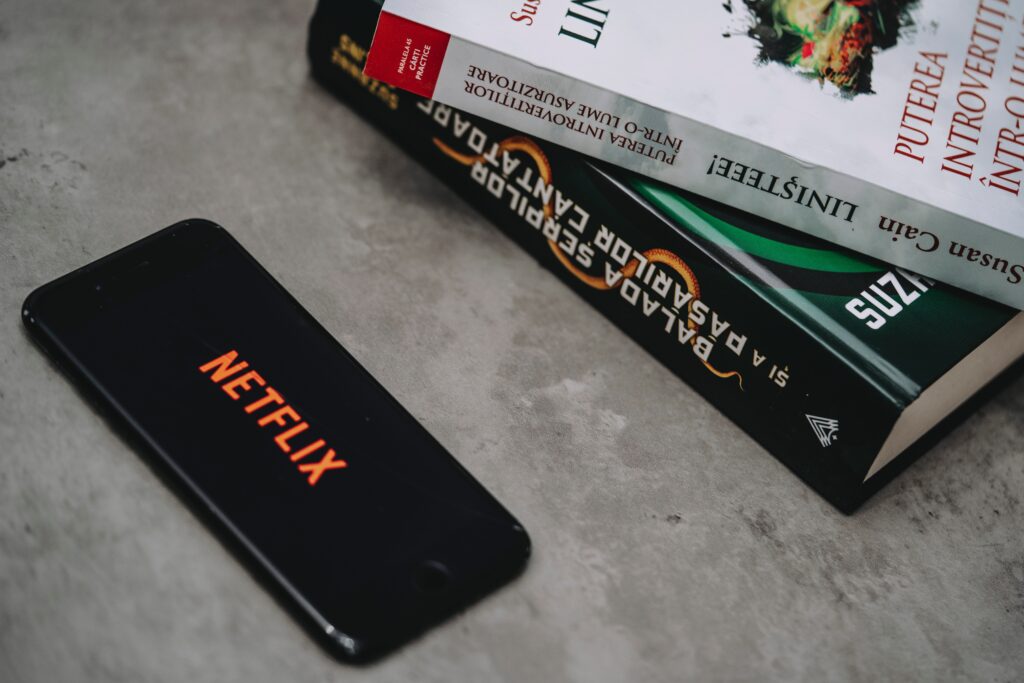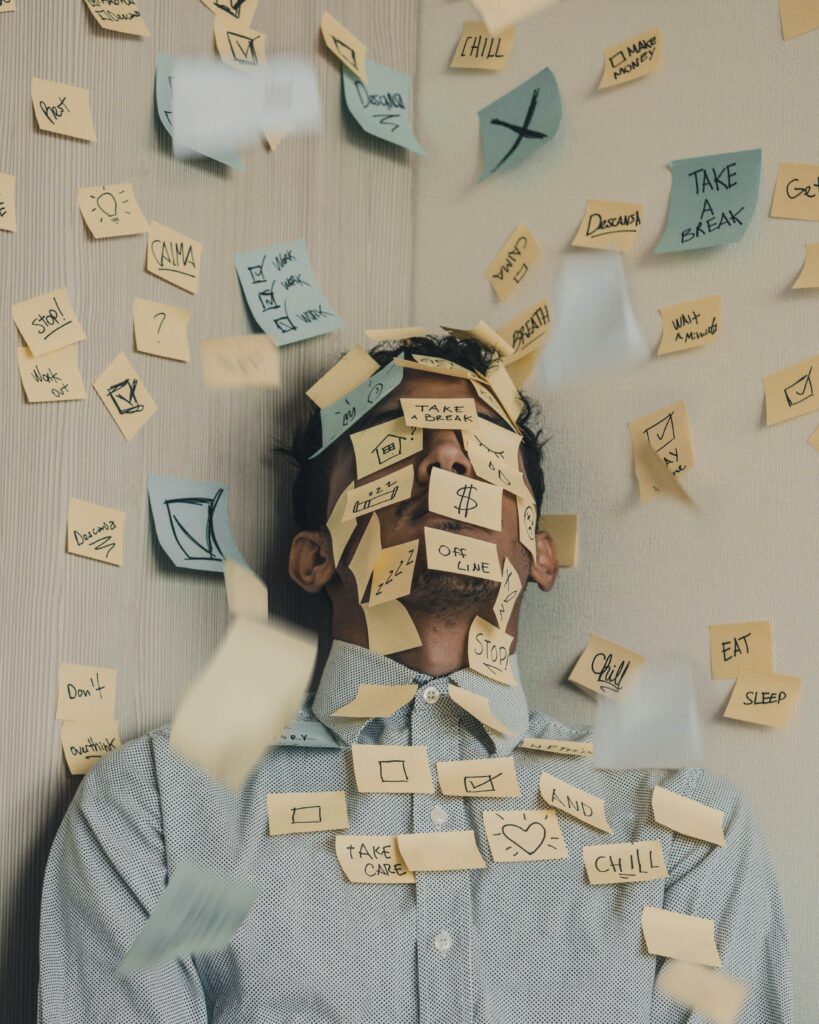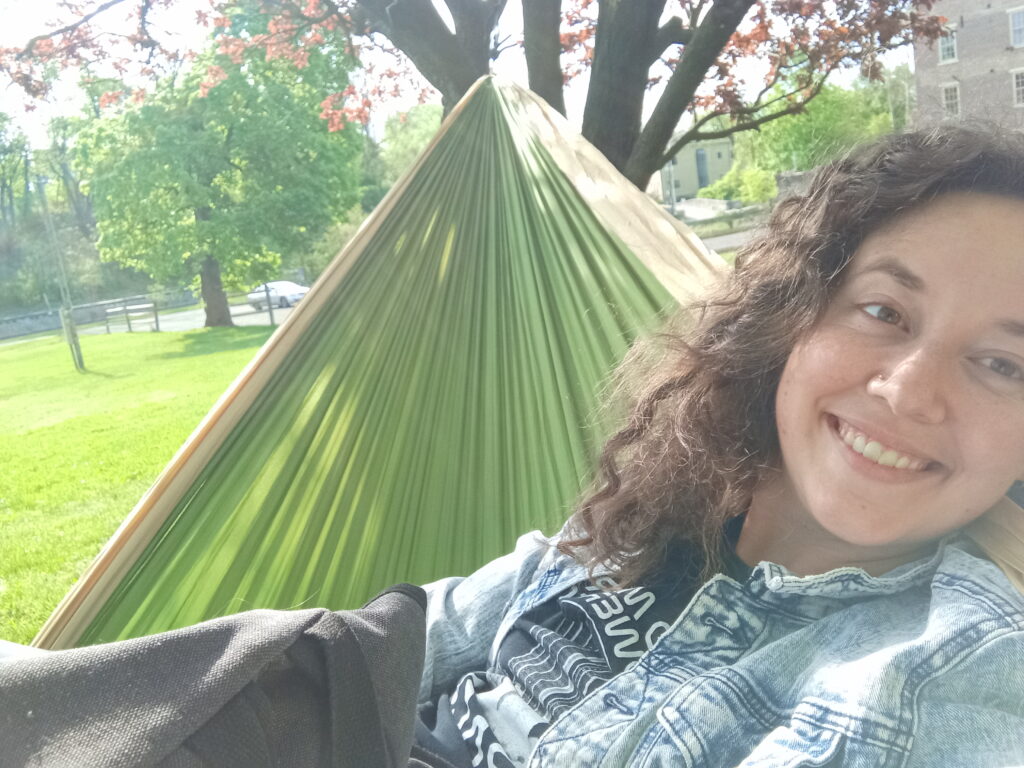Hey, how you doin? You gonna read an article? That’s the spirit!
You know, I’m finding myself with less and less ability to do things like this.
Back in the day, I used to love trips to the library — and returning home with a fat stack of books that I would pore over for endless hours. There was a time when I could sit down and read a book in one sitting. Even ones with the small font.
But it seems those times have come and gone — and with them, I seem to have become a little more stressed and a little more disorganized — you’ll see me, harried, running from task to task like it’s my job. (And it is.) But also, what happened to my ability to just carve out time? It’s not just my life circumstances that have changed.
It’s hard to believe that it was nearly 6 years ago when Time sadistically declared that human beings now have an attention span shorter than your average goldfish. And although that’s not an entirely correct way of looking at things, it does shed some light on this growing phenomenon I (and likely, you) have experienced: an inability to attend to things.
Despite all the talk of multitasking and productivity, the reality is that the inability to attend to something for a long period of time is not exactly beneficial to us.
Let’s review some possible reasons why this is all happening.
Screens, Screens, Screens
Not to sound like an old person, but all this time on my phone is majorly harshing my mellow.

But actually, having a gadget I can do anything on has become extremely distracting. Not to mention, there’s notifications going off that serve to interrupt what I’m doing and bring my attention back to it. Have I mentioned memes??
The brain is constantly growing and adapting, adding new neural connections and pruning back less-used ones. Some scientists believe that boredom is an impetus for creativity and imagination, and the ability to constantly access stimulation through our digital devices is quelling this natural wellspring of growth. Studies have also shown that blue light affects sleep and natural body rhythms, which can also have a major impact on our wellbeing.
Perhaps most importantly, digital devices often work to stimulate our dopamine reward system, which can have deleterious effects. Dopamine is the chemical reward we get that drives seeking or goal-directed behavior. I get a fresh hit of dopamine when I get a message from someone I’m interested in, or when I win a game, when I learn something really cool, or when I see a picture of a cat.
Dopamine makes us seek out these behaviors, much in the same way I seek out a cheeseburger or someone seeks out their own personal drug of choice. The brain doesn’t really differentiate between what an addiction is, at a chemical level: there’s just that sweet, sweet dopamine.
And just like any addiction, people face withdrawal-like anxiety when they are parted with their phones.
That same Time article mentions, “77% of people aged 18 to 24 responded “yes” when asked, “When nothing is occupying my attention, the first thing I do is reach for my phone,” compared with only 10% of those over the age of 65.”
This can have negative effects on attention span and impulsivity.
I would argue that we as a generation aren’t getting dumber with time, nor are we suffering the trials and tribulations of aging, but rather, it’s tough to combat human nature when we have pretty much constant access to stimulation.
Bite-Sized Activities Affecting my Palate
Alongside the aforementioned, sometimes it seems like the lowest common denominator just keeps getting, well, lower.
As the years passed, literature hadn’t changed much, but my perception of it has: books seem to be getting longer, and longer, as though I’m trapped in some Alice in Wonderland-esque horror world. But, they aren’t: they are just seeming more inaccessible to me.
Why’s that? Probably because I got so used to using my phone and computer for all my reading needs.
Rather than reading a book, I could watch the movie. Or, I could read an article on it. Or, I could read a review. Or, I could watch a 5-minute YouTube video. Or, I could bypass all this and just read the comments section.

The hours I would have invested in reading have slowly been reallocated, at least in my world, to the dreaded endless scroll, a world where I am trapped in my phone because “it’s quicker/easier/more accessible!” and then I fall into a pit of reading and reading and reading, accomplishing no larger goal and feeling like I just wasted hours of my life. Do you know the feeling?
The endless scroll is a new invention: as social media continues to adapt and dominate recent life, marketing companies have determined a great way to keep folks hooked: don’t give a light at the end of the tunnel; just let it keep on rollin’. Let the feed keep feeding, let the videos autoplay. There’s so many things pulling your attention, it’s hard to leave or keep track of time.
The pandemic has worsened things in this regard too, as other options for socializing and diversion have fallen by the wayside, leaving us ever more reliant on our screens.
Unsurprisingly, studies consistently show links between screen time and poor mental health symptoms associated with anxiety, depression, and ADHD.
Myths Around Productivity
Why am I writing this article at 10pm on a Thursday instead of playing Assassin’s Creed like I had originally planned?
Ah, yes, perhaps it’s because I wanted to feel productive.
Nearly one in five Americans manage an anxiety disorder diagnosis — what’s up with this first-world problem?
In our culture especially, there is an extremely strong script underwriting our daily lives. I refer to this as a puritanical work ethic, or meritocracy, and kind-of-sort-of cover the shebang: basically, work = good, relax = lazy.

Another writer who’s got a much more impressive resume than myself termed it workism and likened it to a new religion in America: “What is workism? It is the belief that work is not only necessary to economic production, but also the centerpiece of one’s identity and life’s purpose; and the belief that any policy to promote human welfare must always encourage more work.”
As Americans, we have a deeply ingrained desire to move toward productivity — try harder, work more, seek our success, pull yourself up by your bootstraps, one day you can have the lifestyle of the rich and famous, too.
This has led in a lot of cases to the eclipse of other aspects of identity.
How many times have you met someone and one of the first lines of conversation is, “What do you do?” (In, like, a job sense.)
How many folks do you know sacrifice vacation time, or come into work when they’re sick, because they feel guilty taking time for themselves?
It’s almost difficult for us, sometimes, when we have fallen prey to this mindset, to allow ourselves to focus on a personal project, instead insisting that any free time must be spent hustling to keep on climbing. This can lead to chronic stress and burnout, and an inability to use time for pleasure, relaxation, or other “selfish” pursuits.
Call me a libleft (I’ve been called worse before) but I firmly believe your value in life isn’t determined by your ability to be a cog in the capitalist system we call America.
Stress
Here’s a big hurdle to just being able to focus in: stress.
It’s been a hell of a year, right? Oh, that little thing? The global pandemic? Remember that? Which I may remind you that we are still living through??
Has the water temperature really gotten more manageable, or have we gotten used to boiling in this pot with the rest of the frogs?
I’ve written about stress before from a biological standpoint, making note of the way that bodily systems are affected by chronic stress. Like any other bodily system, the brain also does not escape the trials and tribulations of acute and chronic stress.
Stress affects our brain big time. It can affect our mood, our attention span, our ability to form and organize memories, and our ability to problem-solve, among other things.
There’s a positive side to this: the brain has infinite potential to adapt. In the same way it’s adapted to the stress of our current situation, it can adapt back.

Anyways, what do we do about this? Can I ever get back to reading a book series? Or making a new art piece? Or paying attention to a conversation??
Click through my slideshow to find out, one animated gif at a time! Answer #13 may surprise you!
(Just kidding.)
Recondition Your Brain
Mindfulness – Mindfulness training helps the brain to sustain focus for a period of time — on the breath, on your physical experience, on a mantra, on the present moment. The more the brain practices being at rest and focusing in, the more accessible it becomes. Start small.
Play Eye Spy – Here’s an exercise in Mindfulness that is especially helpful as we continue to exist in our homes and be on screens 24/7. Taking breaks is great, and using your eyes is great in reducing eye strain. Allow yourself time to look at stuff in your environment for a few minutes, and just observe stuff.
Reduce Extraneous Stimuli – Stop playing videogames while listening to a podcast while on the phone with your friends while completing a continuing education course for work. Look, multitasking is great. But focusing on too many things at once saps our ability to focus on anything at all, and saps our pleasure in the moment.
Limit Screen Time – Start small. We can’t ditch screens altogether. Just look for a reduction in your screen time if at all possible. Try a screen timer, try deleting apps that are particularly troublesome, try allowing yourself to do activities without your phone nearby.
Turn off Notifications – Do you need your work email on your phone? Do you need your phone to ring every time great aunt Gertrude comments on an old photo of you? You are allowed to prune down on your notifications to only those necessary. And consider “do not disturb” mode when you are invested in a task. Unplugging is ok.
Exercise – Exercise is extremely helpful for health and wellbeing (I know, I’m sorry). Allowing your body to do something active, and allowing yourself to exist in your body during those moments, helps us to be more in the present and focus in. Even if it’s uncomfortable and sticky.
Listen to Instrumental Music – Time to chill to some of them lofi beats to study/relax to. Instrumental music can help us to relax and focus in on a task and don’t offer as many distractions as music with lyrics would. Allowing yourself to stop and take in classical music, for example, also forces us to focus in on the nuanced aspects of music.
Give Yourself Some Fun and Pleasure – Not everything has to be productive. You are allowed to look at silly cat photos and take in some joy. Take breaks at work and allow yourself to focus on something enjoyable. Take time when not working to not focus on productivity, too, and allow yourself to pursue hobbies or interests you have. I don’t know why it feels counterintuitive, but being in a good mental state can boost your productivity.
Allow Yourself Downtime – There’s increasing research that allowing yourself mental downtime is as important to learning as period we spend actively absorbing information. Taking some downtime allows us to process and store information, and reduces stress. You can also help to increase your attention span and ability to focus.
Take Tasks One at a Time – See if you can carve out time in your schedule for specific things. 1pm, take a lunch break and just focus on your food, its texture, its taste. 2pm, empty your email inbox. 3pm, respond to a group project thread you are a part of. Allowing yourself not to multitask enables your brain to sustain more focus.
Take Breaks – It seems counterintuitive, but even just standing up and stretching every hour or so can help you to return to your task at hand more refreshed and able to focus in.
Write Letters – Our ancestors actually also communicated with each other and did not need to be chained to a phone in their hands at all times. Opening yourself up to other, more longform kinds of communication can allow yourself to take pleasure in communication and focus on a lengthier task. I can say for myself I get dread when I get a text, and I often open a text, forget about it, and then worry about it whenever I’m reminded but still don’t reply, repeat ad nauseum. Writing letters to people in my life has allowed me to stay in touch with loved ones, send gifts, and really focus on them for a time.
Draw – Here’s another activity that forces you to focus on your environment (internal or external!) amd pay attention to a task for a time. Creating a still life drawing, attending a figure drawing class, doing some worldbuilding, fleshing out your D&D character — whatever it is, it’s a great way to practice focus and get better at a skill you can take anywhere with you! My eyes were opened up to this when I traveled with someone new and right in the middle of a clearing, they whipped out a sketchbook. I never knew I could do that before! Try it sometime.
Form New Habits – If your habit whenever you are bored or there is a lull is to reach for your phone, then try forming a new habit. Keep a book nearby. Bring a journal with you. Allow yourself to sit in silence for a time. Lie down on the sun shining on the floor like a sleepy cat. Whatever.
Use Print Media – This is another resource to keep you away from the screens. Keep a book, a magazine, a printed article nearby. If you have a book you want to read and it feels like a slog, it’s ok to take it one chapter at a time. That’s not a failure.
Journal – What a way to focus in on a task for an extended period of time! Write about your day. Sit with your feelings. Ask, “What am I thinking right now?” “What is this feeling?” Check out some prompts if you don’t know where to begin.
Get Enough Sleep – Give your brain some time to repair and regain function. Go to bed on time, daydream while you’re in bed, take pleasure in existing under cozy covers, try not to use your phone in bed.
Trek into Nature – Forest bathing is a thing. Trek out into nature (I put together some local resources here) and exist in the present moment. Take note of your senses — what do you see, what do you hear, what do you smell what does it feel like? It’s hard at first, I know. You may be standing in the middle of the woods and can’t get your mind off this project you’re stressed out about. It’s OK. Refocus, touch a leaf, smell a flower, look up to see if you can locate a bird. Refocus on your environment and give your brain a break.

Tl;dr: Stop reading the tl;dr and actually allow yourself to focus on the whole damn thing.